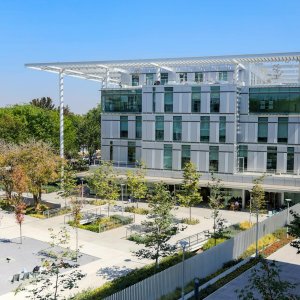Foundations, the Most Important Part of Infrastructure Projects

STORY INLINE POST
Q: What opportunities does the Mexican market offer for a company like Keller?
A: We are the leader in geotechnical solutions, which means that we have clearly defined the market niches in which we work. Given the size and capabilities of the company, we are focused on large-scale projects. In Mexico, these include the Dos Bocas refinery, the Mayan Train and the Mexico-Toluca train. These are projects that fall perfectly within the scope of our capabilities.
We are also focused on the private sector. Projects with the private sector represent a significant percentage of our sales. Within the real estate arena, we work in the hotel, industrial and residential sectors. In all of these areas, we find projects that require a specialist to provide complex solutions, especially in Mexico, where the soil conditions vary and where there is high seismic activity. This makes a company like Keller a perfect fit for the Mexican market.
Q: What is the scope of the company’s operations in Mexico?
A: In Mexico, we offer Keller’s entire service portfolio. Having diverse types of soils and considering the size of the country, the entire territory requires a variety of complex solutions. Working in the Cancun area where you can easily find caves is different than working in Mexico City, which used to be a lake. This means that all our services have a fit in the Mexican market. This also goes in line with our moto “Global strength and local focus.”
Q: What is the relevance of Mexico in Keller’s global operations?
A: Mexico’s contribution is important. However, we have a larger participation in other countries. We have been in the Mexican market in and out for nearly 30 years, but with local presence only 6 and it takes time to position in any country. I believe that we have done this job very well but we have to generate a strategy that supports this. The growth we hope to experience has to be sustainable. It is important to use our internal synergies and the know-how of the group, especially considering the problems that we may have experienced in other countries might also appear here.
Q: The change in federal administration had a deep impact on the construction industry. How has this affected Keller’s operations?
A: Management changes always have an initial organization process that affects the construction sector. Keller has planned on its strategy as being able to move forward without this affecting us. We work in both the public and private sectors so we can balance the problems that may arise in each of the sectors. In any case, we firmly believe that the slow-down will be solved in the sector since Mexico has many infrastructure needs to be realized and must be implemented.
Q: What opportunities does the National Infrastructure Plan offer to a company like Keller?
A: Keller participates in large-scale projects and most of the companies that participate in their design rely on us because we play an important role in defining the project. The foundation of any infrastructure project, even though it is never seen, is the most important part of the project and is the base from which the project is executed.
The National Infrastructure Plan includes several projects where we can make a difference and that many people did not perceive as viable. For instance, the Dos Bocas refinery is a project many people doubted would go forward. However, we are working to improve the soil at the location, which requires a significant investment in terms of money and human capital.
Another project in which we are participating is the Mexico-Toluca train. Though many believed the project would not be completed, it appears to be reactivating. We are also working alongside the companies that intend to participate in the bidding process for the Mayan Train. We believe that the projects that were presented have a possibility of being completed and if they have not begun it is because they require a significant economic investment.
Q: Has Keller experienced any challenges sourcing specialized human capital in Mexico?
A: We have not run into this problem. We work with different professional profiles but our main requirement is for civil engineers. Mexico has really good universities, and civil engineering graduates have a solid profile. We hire them, we give them the opportunity to study a specialty in Europe, we train them and take them to many countries where they can specialize even further and learn better practices. This provides our engineers with solid training and when they return to Mexico, they are highly specialized.
Human capital is the backbone of our company and represents an added value with respect to our competitors, which is one of the reasons we invest heavily in our people. Part of the added value for our clients lies in our technical knowledge. We not only execute projects but optimize them and make sure that the solution works. Should any problem arise, we have someone with the technical capabilities to solve it.
Keller is the world’s largest geotechnical specialist contractor with a solid reputation built on 150 years of engineering excellence and commitment to innovation and has been operating in the Mexican market for nearly thirty six years








 By Gabriela Mastache | Senior Journalist and Industry Analyst -
Wed, 03/04/2020 - 16:13
By Gabriela Mastache | Senior Journalist and Industry Analyst -
Wed, 03/04/2020 - 16:13















